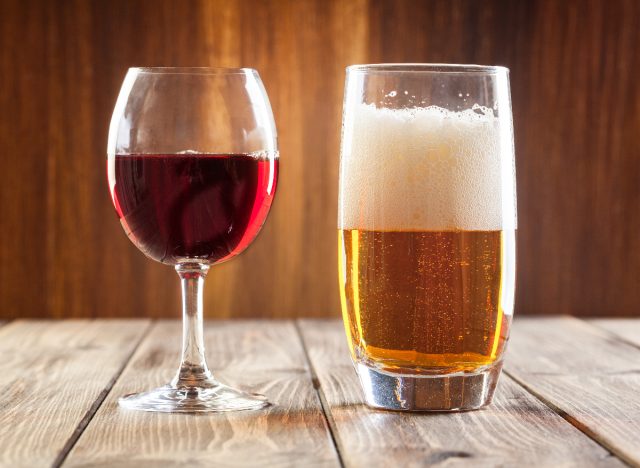Indulging in alcohol may not be as harmless as you think. That may be something that you or someone you know should be aware of, due to the fact that one out of every six adults in the United States binge drinks, according to the CDC. While the CDC defines binge drinking as having more than four drinks at one time for women and five or more for men, 25% of binge drinkers have at least eight drinks in a single sitting. Furthermore, 25% of people binge drink once a week if not more. Whether you tend to drink that much or somewhat less, a study has found that drinking too much alcohol can significantly increase the risk of stroke.
The INTERSTROKE study that was co-led by the University of Galway and was published in Neurology involved 25,848 participants from 27 countries who were of various ethnic backgrounds. Those behind the study noted that 25% of the participants identified as current alcohol drinkers, 16.7% were former drinkers, and 58.3% had never been drinkers.
When the drinking habits of the participants were compared to instances of stroke, researchers noted that current drinkers were 14% more likely to suffer from any kind of stroke and had a 50% increased risk of a specific kind of stroke known as an intracerebral hemorrhage (IHC).
On top of that, participants who were drinking a high amount of alcohol—14 drinks per week for women and over 21 drinks per week for men—increased the risk of stroke by 57%. At the same time, binge drinking was associated with a 29% higher risk of ischaemic stroke, a 39% higher risk of all stroke, and a 76% higher risk of intracerebral hemorrhage.

While looking at different kinds of alcohol, researchers uncovered some shocking statistics regarding the impact of beer versus wine.
"Predominant beer consumption was linked with a 21% increase in risk of stroke; this was significantly higher (73%) for intracerebral hemorrhage. Predominant wine consumption was not linked with risk of stroke—there was no increase or decrease," lead researcher of the study Andrew Smyth, professor of clinical epidemiology at the University of Galway, director of the Health Research Board-Clinical Research Facility Galway, and a consultant nephrologist at Galway University Hospitals, explained in a press release via EurekAlert!
"Heavy alcohol use over time can shrink the brain and cause loss of brain cells and changes overall in the brain's structure," Johna Burdeos, RD, tells Eat This, Not That! This can apparently "cut off blood flow—resulting in a 'brain attack' or stroke."
As for how various kinds of alcohol affect your body, Burdeos also says that "beer contains fiber, protein, and B vitamins." Wine, on the other hand, "especially red wine, contains a small amount of resveratrol, an antioxidant in red grapes."
"Wine in general also contains flavonoids—a group of phytonutrients that have anti-inflammatory, antioxidant properties," Burdeos continues. "[However,] any health benefit [of either beer or wine] is wiped away when you start drinking in excess."
No comments:
Post a Comment